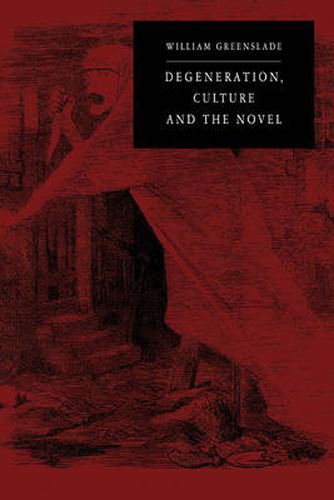Readings Newsletter
Become a Readings Member to make your shopping experience even easier.
Sign in or sign up for free!
You’re not far away from qualifying for FREE standard shipping within Australia
You’ve qualified for FREE standard shipping within Australia
The cart is loading…






Towards the end of the nineteenth century many affluent and educated people, influenced by developments in medical, biological and psychiatric sciences, became convinced that ignorance, insanity and criminality - even homosexuality and hysteria - were symptoms of the degeneration of the human race. Such theories seemed to provide plausible explanations for disturbing social changes, and new insights into human character and morality. For a time they achieved extraordinary dominance. In this book William Greenslade investigates the impact of degeneration theories on British culture, and on fiction. He traces the difficulties experienced by writers, including Hardy, Gissing, Conrad, Wells, Forster and Woolf, in negotiating their own freedom of interpretation in the light of such theories; he pursues the survival of degenerationism in the work of popular writers Warwich Deeping and John Buchan; and he charts the resilience of its tropes through the 1930s.
$9.00 standard shipping within Australia
FREE standard shipping within Australia for orders over $100.00
Express & International shipping calculated at checkout
Stock availability can be subject to change without notice. We recommend calling the shop or contacting our online team to check availability of low stock items. Please see our Shopping Online page for more details.
Towards the end of the nineteenth century many affluent and educated people, influenced by developments in medical, biological and psychiatric sciences, became convinced that ignorance, insanity and criminality - even homosexuality and hysteria - were symptoms of the degeneration of the human race. Such theories seemed to provide plausible explanations for disturbing social changes, and new insights into human character and morality. For a time they achieved extraordinary dominance. In this book William Greenslade investigates the impact of degeneration theories on British culture, and on fiction. He traces the difficulties experienced by writers, including Hardy, Gissing, Conrad, Wells, Forster and Woolf, in negotiating their own freedom of interpretation in the light of such theories; he pursues the survival of degenerationism in the work of popular writers Warwich Deeping and John Buchan; and he charts the resilience of its tropes through the 1930s.